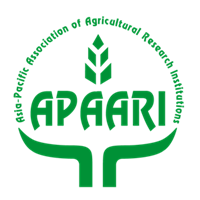Report of the Regional Workshop on Strengthening Regional Cooperation and National Capacity Building on Biosafety in Asia
Since the entry into force of the Cartagena Protocol on Biosafety in 2003, concerted efforts have focused on mobilizing international assistance to help developing countries build their institutional capacities in biosafety and meet their obligations under the treaty. The FAO Regional Office for Asia and the Pacific, in cooperation with the Government of Thailand, launched “Asian BioNet” – a regional initiative on capacity building in biosafety of genetically modified (GM) crops in Asia. This publication presents the outcome of a workshop held in Bangkok, Thailand from 17 to 20 June 2013 under the auspices of Asian BioNet. The documant provides information on the existing status of national policies, guidelines, regulations and administration of biosafety, and the challenges that countries in Asia face in strengthening capacity for expanding the scope of biotechnology research and development.
Related Resources
Balancing wetland conservation and development in the Sanjiang Plains: a review of current status and options. Sanjiang Plain Wetlands Protection Project, final report
Mission report of the Sanjiang Plain Wetlands Protection Project. Colombo, Sri Lanka: International Water Management Institute (IWMI).
Knowledge management solution for achieving sustainable capacity of SMME
Due to the development of knowledge society, there is increased demand for using knowledge management (KM) in an entrepreneurship as well as using information and communication technology (ICT). To achieve sustainable capacity it is necessary to promote KM and ICT...
The Difficult Art of Partnership and Institutional Commitment
This paper looks at two aspects of institutional development in a university setting. It looks at how the design of South – North collaboration may have a bearing on the type of partnership that evolves. And it addresses the issue...

Report on Prioritization of Demand-driven Agricultural Research for Development in Bangladesh
International Food Policy Research Institute (IFPRI) partnered with the Asia-Pacific Association of Agricultural Research Institutions (APAARI) in 2011 to conduct a series of policy dialogues on the prioritization of demand-driven agricultural research for development in South Asia. Dialogues were conducted...

Mainstreaming disaster risk reduction into agriculture: a case study from Bicol Region, Philippines
The Philippines is one of the most disaster-prone countries worldwide. Bicol Region is regularly exposed to a variety of natural hazards including tropical storms, typhoons, droughts, drought spells, flash floods, floods, landslides and volcano eruptions, causing frequent destruction, damage and...


